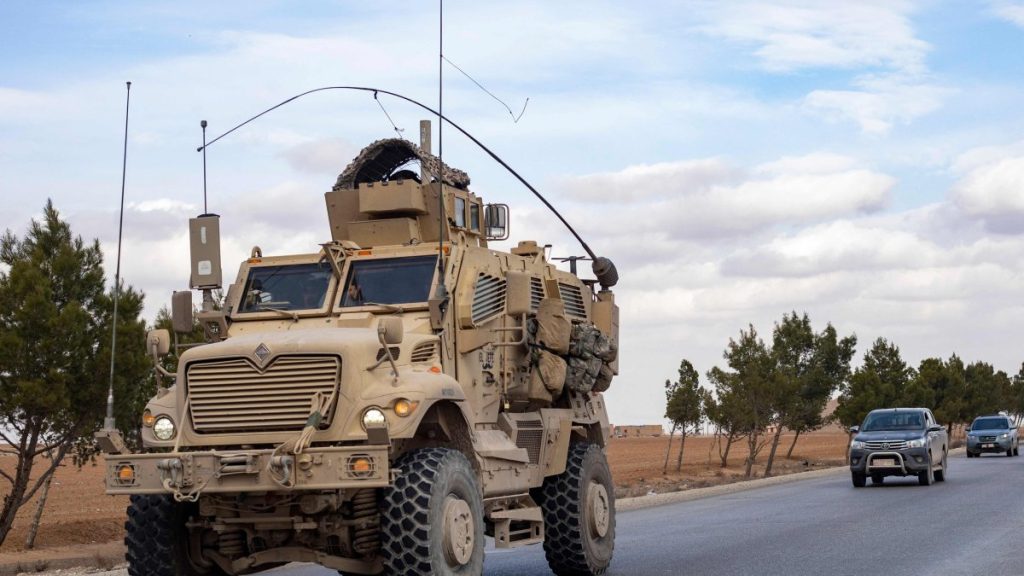The YPG, the Syrian wing of the terrorist group PKK, struggles in post-Assad Syria as Türkiye weighs a cross-border operation and the new government seeks to dissolve them.
Talks are taking place on whether U.S. and French troops could secure a border zone in northern Syria, a senior figure of the so-called autonomous region the YPG/PKK carved out in the northeastern part of the country.
However, Foreign Minister Hakan Fidan warned on Tuesday that Türkiye would launch a counterterrorism operation against the PKK/YPG if the terrorist group’s leadership refuses to dissolve itself. “We will do what’s necessary, and it is a military operation,” Fidan told a live broadcast on CNN Türk. He noted that Türkiye has repeatedly said that the PKK/YPG terrorists must disband themselves if they want a peaceful transition in Syria. Fidan continued by saying that PKK/YPG fighters and leaders who joined the terrorist group from other countries must leave Syria. The next step would be for the terrorist group to disarm and join the newly established army. “This is a bloodless, problem-free transition,” Fidan added. “The ultimatum we gave them (the YPG) through the Americans is obvious,” Fidan said.
French President Emmanuel Macron said earlier this week that Paris would not abandon the YPG/PKK, which has been favored by the West, particularly the United States, for its “partnership” in the fight against Daesh, another terrorist group.
“The United States and France could indeed secure the entire border. We are ready for this military coalition to assume this responsibility,” Ilham Ahmed of the PKK/YPG, was quoted as saying by TV5 Monde. “We ask the French to send troops to this border to secure the demilitarised zone, to help us protect the region and establish good relations with Türkiye.”
Addressing a news conference in Paris alongside outgoing U.S. Secretary of State Antony Blinken, French Foreign Minister Jean-Noel Barrot hinted that there were talks on the issue. “The ‘Syrian Kurds’ must find their place in this political transition. We owe it to them because they were our brothers in arms against (Daesh),” Barrot said.
Allies of the YPG, which designated the PKK as a terrorist group, prefer terming its Syrian wing as a “Kurdish group.”
“We will continue our efforts … to ensure that (Türkiye’s) legitimate security concerns can be guaranteed, but also the security interests of ‘(Syria’s) Kurds’ and their full rights to take part in the construction in the future of their country.”
Blinken said it was vital to ensure that (the PKK/YPG terrorist group) continued the job of guarding more than 10,000 detained Daesh militants as this was a legitimate security interest for both the U.S. and Türkiye.
“We have been working very closely with our ally … Türkiye to navigate this transition … It’s a process that will take some time,” Blinken said.
The U.S. has about 2,000 troops in Syria. A French official said France still has dozens of special forces on the ground dating from its earlier support of the YPG/PKK, when Paris provided weapons and training.
The PKK/YPG, on the other hand, warms to the idea of scrapping their wider autonomy ambition apparently. The group’s leader Ferhat Abdi Şahin told Agence France-Presse (AFP) that they agreed for the unity and integrity of Syrian territory and “rejected any division projects that threaten the country’s unity.”
He spoke following a meeting he described as “positive” between the YPG and the Damascus authorities late last month, and after weeks of deadly clashes between the terrorist group and the Syrian National Army (SNA) in northern Syria. “We support the efforts of the new administration for there to be stability in Syria to pave the way toward building constructive dialogue between Syrians,” he claimed. “Thus it is the responsibility of the new administration to intervene in order for there to be a cease-fire throughout Syria,” he asserted.
The SNA resumed its operations against the YPG/PKK around the same time anti-regime forces moved out of their northern bastion in a flash offensive to seize Damascus in early December. The SNA managed to seize Tal Rifaat and Manbij from the terrorist group though the YPG/PKK still launches attacks attempting to recapture them. The terrorist group said on Wednesday that six of its members were killed in a clash with the SNA in Manbij and nine others were injured.
An official in Damascus told AFP last month that Syria’s de facto leader Ahmed al-Sharaa held talks with YPG delegates in the Syrian capital on Dec. 30, describing them as “positive.”
A day earlier, al-Sharaa had told Al Arabiya TV that the YPG should be integrated into the new national army. He said weapons “must be in the hands of the state alone,” calling on those “armed and qualified to join the Defense Ministry.”


